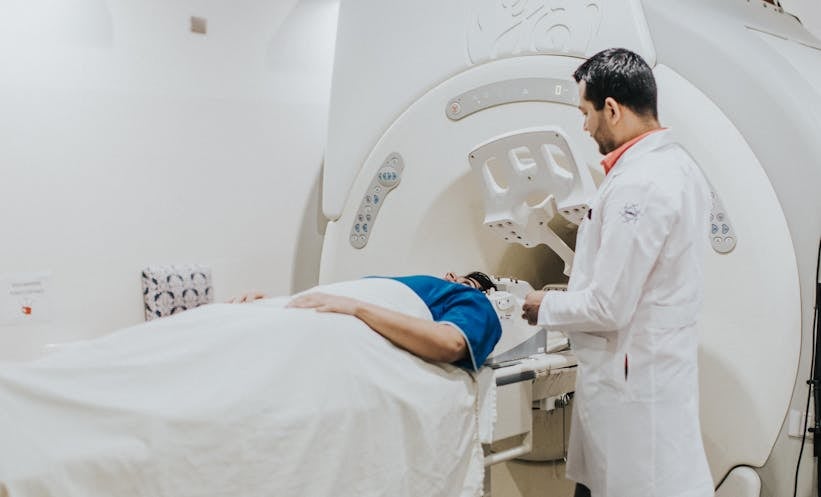PROSTATE-specific antigen (PSA) screening frequently detects prostate cancer that is not clinically significant, producing unnecessary cancer diagnoses. Novel research from a large, randomised trial shows that a new three-step prostate cancer screening method can find a considerable number of aggressive cancers.
The ProScreen trial, conducted at Tampere University and University of Helsinki, Finland, between February 2018–July 2020, randomised 61,193 prostate cancer-free males aged 50–63 years in a 1:3 ratio to either be invited, or not invited, to undergo prostate cancer screening. The screening protocol consisted of a PSA test, a four-kallikrein panel, and an MRI scan. The objective of the study was to compare rates of low-grade (grade group 1) and high-grade (grade groups 2–5) prostate cancer between the group invited to undergo prostate cancer screening and the control group.
Participants randomised to the intervention underwent PSA testing; those with a PSA level ≥3.0 ng/mL then underwent additional testing for high-grade prostate cancer with a four-kallikrein panel risk score. Those with a kallikrein panel score of ≥7.5% underwent an MRI of the prostate gland, followed by targeted biopsies for those with abnormal prostate gland MRI findings.
Of 60,745 eligible males (mean age: 57.2 years), 15,201 were randomised to be invited, and 45,544 were randomised not to be invited to undergo prostate cancer screening. Of participants invited for screening, 7,744 (51%) participated; among them, 32 low-grade prostate cancers (cumulative incidence [CI]: 0.41%) and 128 high-grade prostate cancers (CI: 1.65%) were detected, with one cancer grade group result missing. Among the 7,457 invited males who refused participation, seven low-grade prostate cancers (CI: 0.1%) and 44 high-grade prostate cancers (CI: 0.6%) were detected, with seven cancer grade groups missing.
For the entire invited screening group, 39 low-grade prostate cancers (CI: 0.26%) and 172 high-grade prostate cancers (CI: 1.13%) were detected. During a median follow-up of 3.2 years, in the group not invited for screening, 65 low-grade prostate cancers (CI: 0.14%) and 282 high-grade prostate cancers (CI: 0.62%) were detected. The risk difference for the entire group randomised to the screening invitation versus the control group was 0.11% (95% confidence interval: 0.03–0.20%) for low-grade and 0.51% (95% confidence interval: 0.33–0.70%) for high-grade cancer.
In this preliminary report, one additional high-grade cancer per 196 males, and one additional low-grade cancer per 909 males, were detected among those randomised to be invited to undergo a single round of screening, compared with those not invited. The authors state that these findings should be interpreted with caution, pending results of the study’s primary mortality outcome.
Reference
Auvinen A et al. Prostate cancer screening with PSA, kallikrein panel, and MRI: the ProScreen randomized trial. JAMA. 2024;DOI:10.1001/jama.2024.3841.








